The following funding opportunities have been announced. Please follow the links for more information:

Biomedical Vacation Scholarships
These awards provide promising undergraduates with hands-on experience of research during the summer vacation, with the aim of encouraging them to consider a career in research.Scholarship holders in the past have included students of biological sciences (including biology, sports science and pharmacy) and medics, vets, dentists and optometrists. Students focusing on natural sciences or computing degrees are welcome to use this scheme as a taster for research in the biomedical sciences; however, a suitably focused biomedical research report project would be required.
Scholarships are available for between six and eight weeks and currently provide a stipend for the student of £250 per week. Research expenses are not provided.
Closing Date: 13 February 2015
Innovate UK
Industrial Biotechnology Catalyst – Early-stage – Translation – Round 3
The Biotechnology and Biological Sciences Research Council (BBSRC), the Technology Strategy Board and the Engineering and Physical Sciences Research Council (EPSRC) are to invest £45m in major integrated research and development projects through the Industrial Biotechnology Catalyst. Catalysts provide funding to innovative businesses and researchers working in priority areas with the aim of helping them to quickly turn excellent UK research into new or improved commercial processes and products.
The Industrial Biotechnology Catalyst programme will accelerate commercialisation by supporting the development of new industrial biotechnology products and processes, and enabling their potential scale-up. It will support R&D for the processing and production of materials, chemicals and bioenergy through the sustainable exploitation of biological resources. We are particularly encouraging a collaborative approach. There are five types of award – early stage: translation; early stage: feasibility studies; industrial research; late stage: pre-experimental feasibility studies; and late stage: experimental development – and, with the exception of translation awards which are academic, can involve a single business or be collaborative. Total project sizes can range from up to £250k for feasibility studies to up to £10m for experimental development.
Competition opens on 11 December 2014.
Registration Deadline noon on 25 February 2015
Competition closes on noon on 4 March 2015.
Leverhulme Trust
Awarded to UK institutions that wish to invite an eminent researcher from overseas to enhance the knowledge and skills of academic staff or the student body within the host institution. The scheme covers maintenance, travel expenses and research costs. Visiting Professorships last for between three and twelve months.
The objective of these awards is to enable distinguished academics based overseas to spend between three and twelve months inclusive at a UK university, primarily in order to enhance the skills of academic staff or the student body within the host institution. It is recognised that Visiting Professors may also wish to use the opportunity to further their own academic interests. The over-riding criteria for selection are first the academic standing and achievements of the visitor in terms of research and teaching, and secondly the ability of the receiving institution to benefit from the imported skills and expertise. Priority will be given to new or recent collaborative ventures.
The sum requested should reflect the individual circumstances of the visitor and the nature and duration of the proposed activities. A maintenance grant up to a level commensurate with the salary of a professor in the relevant field at the receiving institution may be requested. Economy travel costs to and from the UK will also be met. Requests for associated costs, if justified by the programme, may include, for example, travel within the UK, laboratory consumables, and essential technical assistance.
Closing Date: 7th May 2015
Welcome Trust
The Hub Award
The Wellcome Trust is committed to supporting work at the interface of health and the wider arts, humanities, sciences and social sciences. To build on our existing programmes, we have launched The Hub at Wellcome Collection, a ground-breaking initiative that provides resources and a stimulating space for researchers and other creative minds to collaborate on an interdisciplinary project linked to the Trust’s vision of improving human and animal health.
As part of our transformation of Wellcome Collection, we have made available a specially designed, flexible space within the building for a research team to be resident for up to two academic years. The Hub Award is the way teams can apply to use this space and request funding for the project.
The closing date for preliminary applications for the second Hub residency is Friday 1 May 2015.
Rosalind Franklin Award and Lecture
This award is made to support the promotion of women in science, technology, engineering and mathematics. The Royal Society Rosalind Franklin Award is awarded annually for an outstanding contribution to any area of science, technology, engineering or mathematics (STEM). The award is supported by the Department for Business, Innovation and Skills and is named in honour of the biophysicist Rosalind Franklin. The first award was made in 2003. The medal is of silver gilt and is accompanied by a grant of £30,000. The recipient of the award is expected to spend a proportion of the grant on implementing a project to raise the profile of women in STEM in their host institution and/or field of expertise in the UK. There are no restrictions on the age of nominees, though it is anticipated that the award will be made to an individual in mid-career, with a maximum of 20 years post PhD or equivalent. Please see the terms and conditions of this award. The winner is also called upon to deliver a lecture at the Society.
Closing Date: 30th January 2015
Biotechnology and Biological Sciences Research Council
Annual focus for responsive mode proposals under the welfare of managed animals priority
The Biotechnology and Biological Sciences Research Council invites applications for its welfare of managed animals strategic priority area. This call encourages high-quality research that seeks to understand and promote the welfare of managed animals in the UK, including farmed, laboratory and companion animals.
Projects should involve the use of animals and demonstrate awareness of, and the potential to inform policy and societal implications. Research should seek to increase the knowledge of the following: the basic behavioural, neurobiological, immune, metabolic, physiological and tissue responses of animals to their environmental conditions; the consequences of human intervention, genetic selection and management, including agricultural intensification, for the normal function of animals; the incidence of disease, pain and mental disorders.
Application Deadline: 8th January 2014
Innovate UK
Circular economy: business models
Innovate UK is to invest up to £800k in feasibility studies into the business case for retaining value in durable goods through reuse, remanufacture or leasing/maintenance. We are seeking projects that explore commercial models for a circular economy of goods in which resources are kept in productive use for longer following primary production – ideally at the same value/use. Projects will be expected to design a pilot to demonstrate how the model could become part of normal business. Feasibility studies (mainly pre-industrial research projects) must be collaborative and business-led. Projects are open to companies of any size. Consortia should include a business that has a relationship with the final customer and can enable the return of products.
The amount of funding you can receive varies according to the type of organisation and type of research being undertaken. Funding levels for feasibility study research will change for competitions opening from 1 January 2015. For further information please refer to http://interact.innovateuk.org/ funding-rules
We expect projects to last 6 months and to range in size from total costs of £25k to £50k. This competition opens on 2 March 2015. The deadline for registration is at noon on 8 April 2015, and the deadline for applications is at noon on 15 April 2015. A briefing day for potential applicants will be held at the Resource Event in London on 3 March 2015. A webinar detailing the competition scope and application process will be broadcast on 9 March 2015.
The Royal Society
DFID Africa Capacity Building Initiative
This programme is for scientists who want to develop collaborative research consortia between scientists in sub-Saharan Africa and a research institution in the UK. The overall aim of the scheme is to strengthen the research capacity of universities and research institution in sub-Saharan Africa by supporting the development of sustainable research networks.
The objectives are to:
- facilitate sustainable multidisciplinary partnerships between research groups in sub-Saharan Africa and the UK.
- strengthen research and training capacity in sub-Saharan African Institutions of Higher Education through the skill transfer between partner organisations of the research consortia.
- produce a cadre of young, talented researchers through integrated PhD scholarships and shared supervision of post-graduate students between the UK-based and African consortia members.
- evaluate the contributions of the Africa Initiative to supporting universities and institutions in Africa to develop sustainable research and research training capacity.
The scheme provides funding towards research expenses, travel and subsistence costs, (PhD) training, and limited funds for equipment. The Programme Grant may provide support of up to £1,243,000 over a five year period.
Closing Date: 19th March 2015
The Royal Society
Wilkins-Bernal-Medawar Lecture
This prize lecture is given on a subject relating to the history of science, philosophy of science or the social function of science.
The Wilkins, Bernal and Medawar lectures were originally delivered as three separate lectures, each given triennially. Since 2007, they have been combined under the one title of the Wilkins-Bernal-Medawar Lecture, and have been given annually.The subject matter for the lecture is some aspect of the social function of science, as per the Bernal Lecture Fund endowed byJohn Desmond Bernal FRS (PDF), the philosophy of science or some other field of interest to Peter Medawar FRS (PDF), and the history of science in recognition ofJohn Wilkins FRS (PDF), the first Secretary of the Society.
If possible the Committee will award the lectureship to an early-to-mid career stage scientist, historian or philosopher. The award is open to citizens of a Commonwealth country or of the Irish Republic or those who have been ordinarily resident and working in a Commonwealth country or in the Irish Republic for a minimum of three years immediately prior to being proposed.The lectureship is accompanied by a medal and a gift of £500.
The call for nominations is now open. Please download the nomination form and return the completed form to awards@royalsociety.org by 6:00pm GMT on 30 January 2015.
Engineering and Physical Sciences Research Council
TASCC: TOWARDS AUTONOMY – SMART AND CONNECTED CONTROL
The EPSRC Engineering and Information and Communication Technologies (ICT) Themes in partnership with Jaguar Land Rover (JLR) are inviting outline proposals that explore research in the area of ‘Smart and Connected Control’ around the central challenge of moving towards a fully autonomous car.
This call is being issued as part of the EPSRC–JLR strategic partnership. Funds of up to £10 million are available. We expect to support between four and six research projects, up to five years in duration, subject to the quality of the proposals received. The first stage of this call is an invitation for Outlines, and will be followed by Full Proposals. Applicants will be interviewed at the full proposal stage by an expert panel.As part of this activity there will be a series of workshops to develop ideas and interactions with JLR and other research groups.
As a joint funder JLR will work closely with successful applicants.
Closing date: 29 January 2015 at 16:00
Arts & Humanities Research Council
Call for applications to present virtual exhibitions of images on the AHRC website
he AHRC is marking its tenth anniversary in 2015 through a number of activities designed to showcase the achievements of the arts and humanities research community over the last decade, to look forward to the coming decade and to celebrate the role of the arts and humanities in all areas of our national life. Applications are invited from researchers of all disciplines within the arts and humanities to submit ideas with a link to the AHRC’s 10th anniversary for ‘virtual’ exhibitions in the AHRC’s online Image Gallery.
Images are generated and used in the arts and humanities in a wide variety of ways and for a range of purposes – for example, images produced and created through the visual arts, digitised images from museums, libraries and archives, design and architectural blueprints, photographs, cartoons, newspapers, maps, computer-generated (CGI) or computer–enhanced images, virtual reality and visualisation representations, and much else.
A total of £4,000 will be available to each successful applicant or group of applicants to prepare, make available and submit their images for exhibitions. The AHRC welcomes applications from all areas of the arts and humanities and from researchers at all stages of their careers, including doctoral students and early career researchers. Applicants are required to submit sample images along with a proposal for their exhibition; please see the call document (PDF 69KB) for further details (opens in a new window).
Closing Dates: 15/01/2015 at 4pm
Innovate UK
Industrial Biotechnology Catalyst – Industrial research – Round 3
The Biotechnology and Biological Sciences Research Council (BBSRC), the Technology Strategy Board and the Engineering and Physical Sciences Research Council (EPSRC) are to invest £45m in major integrated research and development projects through the Industrial Biotechnology Catalyst. Catalysts provide funding to innovative businesses and researchers working in priority areas with the aim of helping them to quickly turn excellent UK research into new or improved commercial processes and products.
The Industrial Biotechnology Catalyst programme will accelerate commercialisation by supporting the development of new industrial biotechnology products and processes, and enabling their potential scale-up. It will support R&D for the processing and production of materials, chemicals and bioenergy through the sustainable exploitation of biological resources. We are particularly encouraging a collaborative approach.There are five types of award – early stage: translation; early stage: feasibility studies; industrial research; late stage: pre-experimental feasibility studies; and late stage: experimental development – and, with the exception of translation awards which are academic, can involve a single business or be collaborative. Total project sizes can range from up to £250k for feasibility studies to up to £10m for experimental development.
The competition opens on 11 December 2014. The deadline for registration is noon on 25 February 2015 and the competition close date is noon on 4 March 2015.
Industrial Biotechnology Catalyst – Late-stage – Pre-experimental feasibility studies – Round 3
The Biotechnology and Biological Sciences Research Council (BBSRC), the Technology Strategy Board and the Engineering and Physical Sciences Research Council (EPSRC) are to invest £45m in major integrated research and development projects through the Industrial Biotechnology Catalyst. Catalysts provide funding to innovative businesses and researchers working in priority areas with the aim of helping them to quickly turn excellent UK research into new or improved commercial processes and products.
The Industrial Biotechnology Catalyst programme will accelerate commercialisation by supporting the development of new industrial biotechnology products and processes, and enabling their potential scale-up. It will support R&D for the processing and production of materials, chemicals and bioenergy through the sustainable exploitation of biological resources. We are particularly encouraging a collaborative approach.There are five types of award – early stage: translation; early stage: feasibility studies; industrial research; late stage: pre-experimental feasibility studies; and late stage: experimental development – and, with the exception of translation awards which are academic, can involve a single business or be collaborative. Total project sizes can range from up to £250k for feasibility studies to up to £10m for experimental development.
The competition opens on 11 December 2014. The deadline for registration is noon on 13 May 2015 and the competition close date is noon on 20 May 2015.




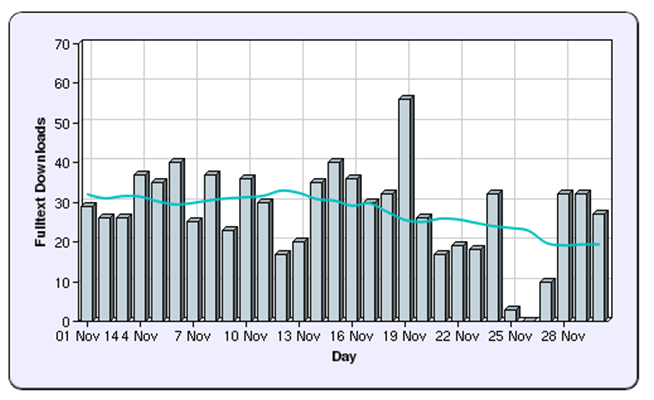



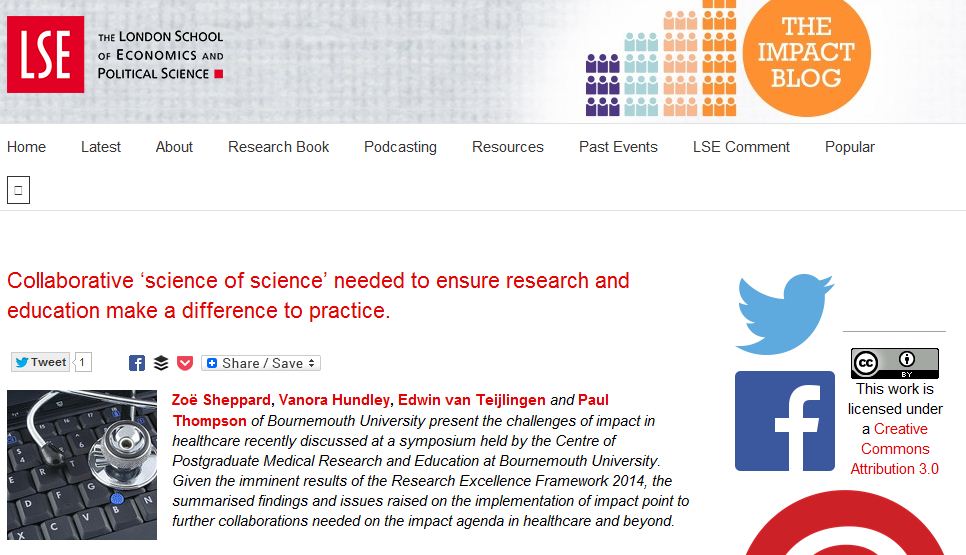


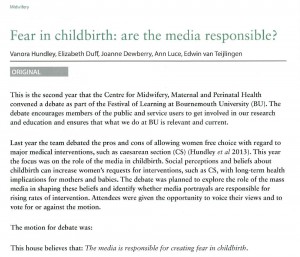

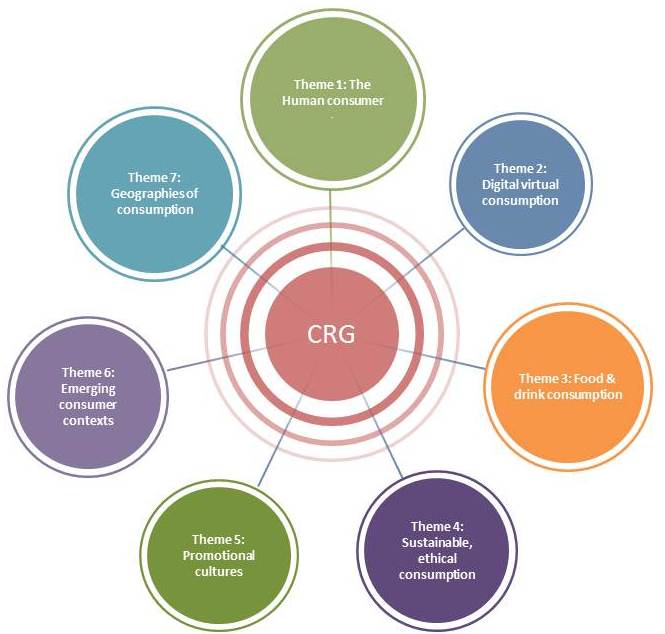



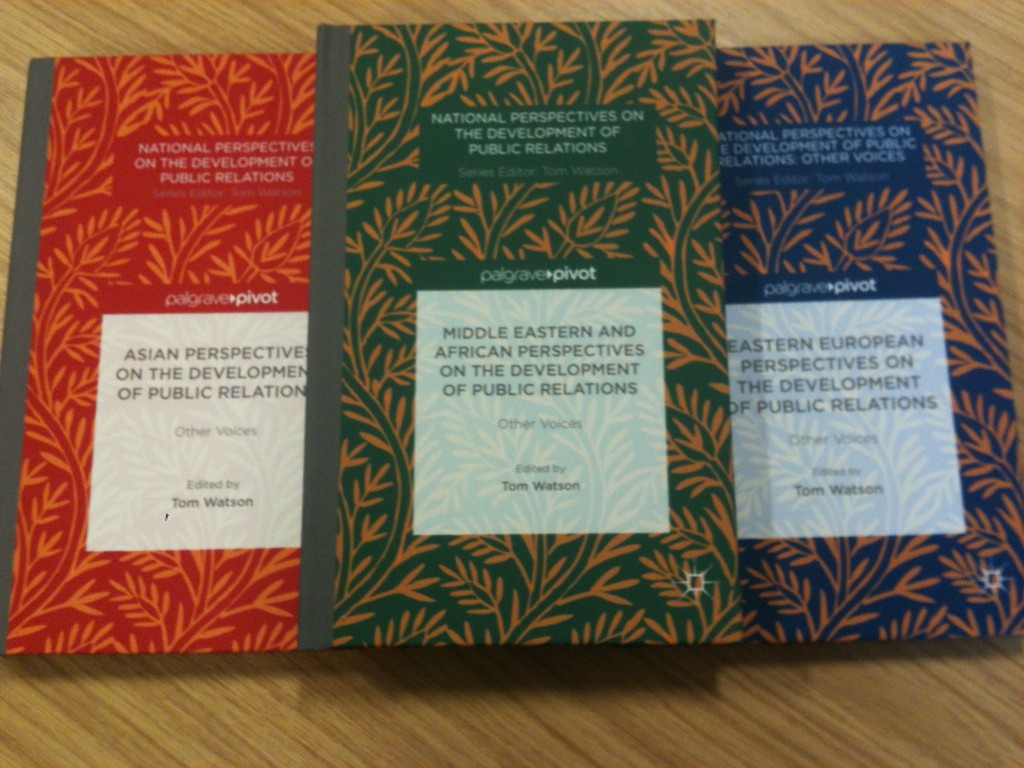











 New weight change BU paper
New weight change BU paper One week to go! | The 16th Annual Postgraduate Research Conference
One week to go! | The 16th Annual Postgraduate Research Conference Geography and Environmental Studies academics – would you like to get more involved in preparing our next REF submission?
Geography and Environmental Studies academics – would you like to get more involved in preparing our next REF submission? Congratulations to three former BU staff
Congratulations to three former BU staff MSCA Staff Exchanges 2024 Call – internal deadline
MSCA Staff Exchanges 2024 Call – internal deadline Applications are now open for 2025 ESRC Postdoctoral Fellowships!
Applications are now open for 2025 ESRC Postdoctoral Fellowships! Horizon Europe – ERC CoG and MSCA SE webinars
Horizon Europe – ERC CoG and MSCA SE webinars MaGMap: Mass Grave Mapping
MaGMap: Mass Grave Mapping ERC grants – series of webinars
ERC grants – series of webinars